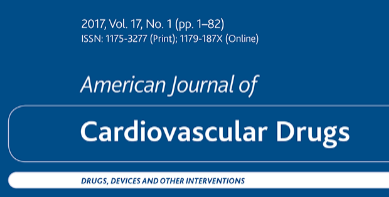Abstract and Introduction
Abstract
Background Patients with diabetes mellitus are at an increased risk of cardiovascular morbidity and all-cause mortality. Heart failure and type 2 diabetes often occur concomitantly, and each disease independently increases the risk for the other. Objective Emerging data have revealed that some sodium-glucose cotransporter inhibitors (SGLTi) improve cardiovascular and renal outcomes, particularly in patients with type 2 diabetes. The magnitude of this effect in patients without any underlying condition remains unclear. As a result, we conducted a meta-analysis of the mortality outcomes of available SGLTi in patients with or without cardiovascular diseases, type 2 diabetes, cardiovascular risk factors, and heart failure.
Methods: We performed a systematic review and meta-analysis of randomized, placebo-controlled major cardiovascular outcome trials of SGLTi in patients regardless of their cardiovascular disease or risk status. PubMed, Cochrane, Google Scholar, MEDLINE, and EMBASE were searched for the relevant studies. Three reviewers extracted study data and three reviewers summarized the strength of the evidence. Efficacy outcomes included all-cause mortality, major adverse cardiovascular events (myocardial infarction, stroke, or cardiovascular death), the composite of all-cause mortality, cardiovascular death, or hospitalization for heart failure. Odds ratios with 95% confidence intervals were pooled across trials to calculate the overall effect size.
Results: A total of 5043 all-cause mortality events were observed in the study groups. In 42,050 patients who received SGLTi, 2581 events were reported, and 2462 events were reported in 35,491 patients who received placebo (odds ratio = 0.86, 95% confidence interval 0.80–0.93, p = 0.0003). The use of SGLTi significantly reduced cardiovascular mortality compared with control across the patients' population (odds ratio = 0.86, 95% confidence interval 0.79–0.93, p = 0.0001). There was a consistent pattern of mortality beneficial estimates for all patients with different co-morbid conditions in the SGLTi-treated arm compared with the placebo-treated group. The presence or absence of significant cardiovascular disease risk factors (including a family history of premature coronary artery disease, baseline estimated glomerular filtration rate, dyslipidemia, hypertension, smoking, history of cardiovascular disease, and older age) did not affect the estimated mortality benefits.
Conclusions: Sodium-glucose cotransporter inhibitors significantly reduced major adverse cardiovascular events, including hospitalization and all-cause mortality in patients with or without established atherosclerotic cardiovascular disease. We observed a beneficial trend in patients with heart failure with preserved ejection fraction, and no benefits in patients with stroke or myocardial infarction.
Plain Language Summary: Patients with diabetes are at increased risk of cardiac illness and mortality. Heart failure (HF) and type II diabetes mellitus (DM II) often occur concurrently, and each disease independently increases the risk for the other. Evolving data have revealed that medications utilized for diabetes management, specifically, sodium-glucose cotransporter inhibitors (SGLTi) improve cardiac and renal health, particularly in patients with DM II. The impact of this effect in other patients remains unclear. Therefore, we conducted a comprehensive review of the mortality and other benefits of available SGLTi in patients with or without cardiac diseases, DM II, cardiac risk factors, and HF. A total of 5043 mortality events were observed in the study groups. The use of SGLTi significantly reduced cardiac death compared with placebo. There was a reduction in the number of deaths for patients with different conditions in the SGLTi treated arm compared with the placebo group. The presence or absence of cardiac disease, or risk factors did not affect mortality benefits. SGLTi significantly reduced major adverse cardiac events, including hospitalization and mortality in patients with or without cardiac disease.
Introduction
Patients with diabetes mellitus are at an increased risk of cardiovascular (CV) morbidity and mortality.[1] Cardiovascular disease is the leading cause of death in patients with type 2 diabetes; more than 60% die of CV disease, and an even more significant proportion has CV-related severe complications. Diabetes is associated with a two-fold to four-fold increase in the risk of coronary heart disease and death.[2]
Type 2 diabetes and heart failure (HF), both independent risk factors of each other, are comorbidities often seen in the patient population. In HF, including both HF with reduced ejection fraction and HF with preserved ejection fraction, 10–47% of population have type 2 diabetes (DM II) and >40% of hospitalized patients with HF also have DM II.[3,4] Conversely, 9–22% of patients with DM II have a concomitant HF diagnosis that is four-fold higher than patients without DM II and this number is even more significant in elderly patients with DM II.[3,4] Poor clinical outcomes are often reported in patients with both HF and DM II than those without DM II. Frequent hospitalization in patients with DM II is 50% higher than those without. Despite hospital readmission being modestly increased in patients with DM II, patients with DM II and HF have the worse health-related quality of life than each disease alone.[3,4]
Tight glucose control with the use of older antidiabetic agents such as metformin, thiazolidinediones, sulfonylureas, and meglitinides as well as dipeptidyl peptidase inhibitors has been associated with reductions in microvascular complications (i.e., retinopathy, neuropathy, and nephropathy).[5–7] However, no beneficial effect was observed on macrovascular disease (i.e., myocardial infarction [MI], stroke, CV death) among these agents, except metformin.[6] Consequently, the US Food and Drug Administration required a thorough CV safety assessment for all novel glucose-lowering agents.[2] As a result, studies are evaluating CV outcomes associated with diabetes medications, including the impact on major adverse CV events (MACE = CV death, nonfatal MI, and nonfatal stroke).
The sodium-glucose cotransporter-2 inhibitors (SGLT2i) are a relatively new class of glucose-lowering agents approved for treating DM II. They selectively inhibit renal glucose reabsorption, thereby increasing the urinary excretion of glucose.[8] The sodium-glucose cotransporter-2 protein (SGLT2) is primarily involved in glucose reabsorption from the urinary filtrate. In contrast, sodium-glucose cotransporter 1 protein is responsible for glucose absorption in the small intestine. In addition, sodium-glucose cotransporter 1 protein is expressed in the distal proximal tubule, where it contributes to glucose reabsorption, especially following SGLT2 inhibition when tubular glucose concentrations are increased. A reduction in intestinal glucose absorption as a result of sodium-glucose cotransporter 1 protein inhibition is associated with a sustained increase in circulating glucagon-like peptide-1 and peptide YY.[9] Sodium-glucose cotransporter 1 protein inhibition is also correlated with a decrease in oxidative stress, regulation of glucose uptake, and the alleviation of activation of cardiac fibroblasts, among others,[10] all of which can potentially reduce CV disease risks. The currently available sodium-glucose cotransporter inhibitors (SGLTi) have been approved for the treatment of DM II, either as monotherapy or with other hypoglycemic agents. Some SGLTi have been shown to reduce CV risk events, including lowering blood pressure and reducing MI, stroke, and CV death in patients with DM II.[11] Emerging data have shown that some SGLTi improve CV and renal outcomes, particularly in patients with DM II. As a result, the 2022 AHA/ACC/HFSA Guideline for the Management of Heart Failure included the SGLT2i dapagliflozin (DAPA) and empagliflozin (EMPA) in the management of patients with HF with both mildly reduced and preserved ejection fraction.[12,13] Therefore, a meta-analysis of the mortality outcomes of SGLTi in patients with or without the following: CV diseases, DM II, CV risk factors, and HF was conducted to explore the CV benefits of the available SGLTi.
Am J Cardiovasc Drugs. 2023;23(2):113-126. © 2023 Adis Springer International Publishing AG













